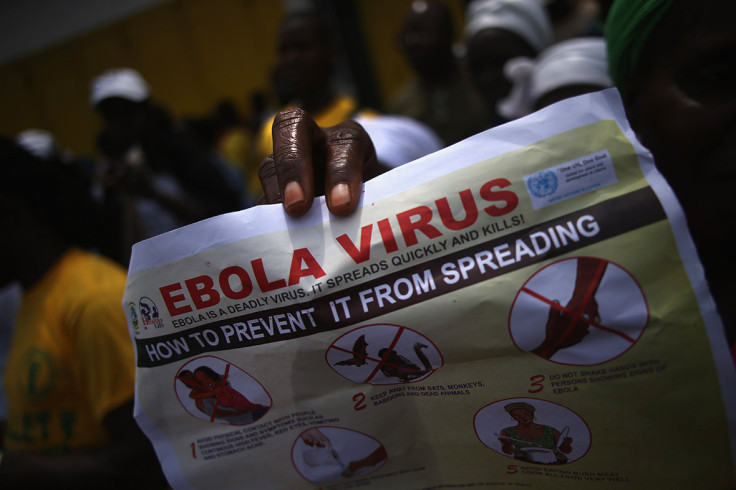Ebola Outbreak: Infected Travellers Use 'Lies and Ibuprofen' to Get Through Airport Screenings

People infected with the Ebola virus in West Africa can avoid detection in airport screenings and board a plane with ibuprofen and lies, according to healthcare experts.
Experts have called for more to be done to identify the virus in travellers, as the current screening methods are insufficient.
"The fever-screening instruments run low and aren't that accurate," infection control specialist Sean Kaufman, president of the Atlanta-based biosafety company Behavioral-Based Improvement Solutions, told Reuters.
"And people can take ibuprofen to reduce their fever enough to pass screening, and why wouldn't they? If it will get them on a plane so they can come to the United States and get effective treatment after they're exposed to Ebola, wouldn't you do that to save your life?"
It was revealed this week that the first Ebola patient to be diagnosed in the United States had lied about his exposure to the virus on a questionnaire at Monrovia airport in Liberia. The form filled in by Thomas Eric Duncan, obtained by the Associated Press, revealed he had filled in "no" to all of the questions.
Duncan had no symptoms of the virus when he left Liberia and fever scans showed he had a normal body temperature, health officials said. He then flew to Brussels and then Dulles airport in Virginia, before landing in Dallas, Texas.
Liberian authorities have said that Duncan would be prosecuted for lying on the health form, Dallas News reported.
Professor David Heymann, part of the international team who investigated the first outbreak of Ebola in the 1970s, is an expert of infectious diseases at the London Schools of Hygiene and Tropical Medicine, explained that screenings are inaccurate.
"You can't find it by screening, because people could be in an incubation period for days," he told IBTimes UK.
The arrival and subsequent hospitalisation of Duncan has highlighted the extent that US authorities are relying on West African officials to detect the virus. Connection airports between Ebola-affected countries and the US also have to increase their methods of detection, experts have argued.
Virologist Heinz Feldmann, of the US National Institute of Allergy and Infectious Diseases, told Science magazine in September that staff carrying out screenings in Monrovia airport "don't really know how to use the devices."
He said he saw screeners record temperatures of 32C (90F), which is so low it is "impossible for a living person."
Feldmann said that his colleagues who had recently returned from Liberia reported the checks had since improved.
The World Health Organization said this week that the death toll in the outbreak had surpassed 3,300.
© Copyright IBTimes 2025. All rights reserved.






















